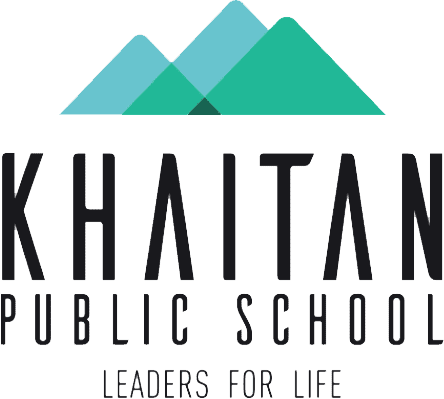In the quest for academic excellence, students often seek the most effective strategies to enhance their study habits and productivity. Drawing insights from discussions with 13 top achievers across various fields—such as IT, JEE, UPSC, Law, and Commerce—this blog post distills nine essential study hacks for students from top achievers that can help both students and professionals unlock their potential.
Understanding Productivity
Recognizing Productive Hours
The first lesson from these top performers is the importance of identifying one’s productive hours. Each individual has a unique rhythm; some find their peak productivity in the early morning, while others may excel in the late hours of the night. By recognizing and optimizing these time slots—typically a four to five-hour window—students can tackle their most challenging subjects when their minds are freshest.
Applying the Concept Beyond Studies
This principle is not just applicable to studying; it resonates throughout life. Whether it’s in a professional setting or personal tasks, aligning challenging activities with peak productivity times can lead to more significant achievements and reduced stress.
Learning Styles: The Key to Effective Study
Identifying Your Learning Style
The second hack emphasizes understanding personal learning styles. Each individual absorbs information differently—some learn best through auditory means, others through visuals, and some through hands-on experiences. This diversity in learning approaches underscores the necessity of tailoring study methods to fit one’s unique style.
Exploring Different Learning Methods
Students should experiment with various techniques, such as:
- Note-taking: Some students benefit from writing down information, reinforcing memory retention.
- Discussion: Engaging in conversations about the material can enhance understanding.
- Multimedia Resources: Utilizing videos, podcasts, and other online resources can cater to different learning preferences.
The Importance of a Clean Environment
Organizing Your Study Space
A common theme among the top achievers was the significance of an organized study environment. Clutter can be mentally distracting and can lead to increased stress levels. Keeping study spaces tidy can foster a more conducive atmosphere for concentration.

Strategies for Organization
- Declutter Regularly: Make it a habit to tidy your workspace frequently.
- Designate Spaces: Allocate specific areas for different activities—studying, relaxing, etc.
- Maintain Supplies: Keep necessary materials organized and within reach to minimize distractions.
Managing Stress through Relationships
Building Supportive Networks
Top achievers stressed the importance of maintaining healthy relationships to manage stress effectively. Having a solid support system—comprising family, friends, and colleagues—can provide emotional relief and facilitate open discussions about fears and insecurities.
Benefits of Strong Relationships
- Stress Reduction: Open communication with loved ones can alleviate feelings of anxiety.
- Emotional Support: A supportive network fosters a sense of belonging and reassurance.
- Shared Experiences: Discussing challenges with peers can lead to shared strategies for overcoming obstacles.
Social Media Detox: A Necessary Step
Eliminating Negative Influences
All 13 achievers reported actively managing their social media consumption to eliminate negativity. By unfollowing accounts that triggered feelings of inadequacy or stress, they created a more positive online environment.
Tips for Positive Social Media Use
- Curate Your Feed: Follow positive and inspirational accounts that uplift you.
- Set Boundaries: Establish limits on daily social media usage to prevent time wastage.
- Focus on Positivity: Engage with content that encourages growth and learning.
The Role of Physical Activity
Incorporating Daily Exercise
Regular exercise emerged as a fundamental habit shared by all top achievers. This doesn’t necessarily mean hitting the gym; simple activities like walking, cycling, or even stretching can significantly boost energy levels and mental clarity.
Benefits of Exercise
- Increased Energy: Physical activity releases endorphins, enhancing mood and vitality.
- Mental Clarity: Regular movement can improve focus and cognitive function.
- Connection with Nature: Spending time outdoors can enhance overall well-being and reduce feelings of lethargy.
Self-Study and Utilizing Online Resources
The Power of Self-Directed Learning
Surprisingly, many top achievers reported success through self-study rather than formal classes. They utilized online resources—tutorials, courses, and exam preparation materials—to tailor their learning experiences to their needs.
Strategies for Effective Self-Study
- Leverage Online Platforms: Websites like Khan Academy, Coursera, or even YouTube provide vast resources that cater to various subjects.
- Set Clear Goals: Establish specific objectives for each study session to maintain focus.
- Stay Disciplined: Create a consistent schedule that integrates study periods with breaks.
Scheduled Downtime: Importance of Relaxation
Allocating Time for Leisure
Among the strategies discussed, taking regular breaks for leisure and relaxation was highlighted. Engaging in fun activities with friends or family not only provides a mental reset but also promotes overall happiness.
How to Schedule Downtime
- Plan Distraction Time: Establish specific periods in your daily routine dedicated to leisure activities.
- Engage in Enjoyable Activities: Whether it’s watching a movie, playing games, or simply chatting, ensure that you take time to unwind.
- Balance is Key: Recognize the importance of balancing work and relaxation for sustained productivity.
Learning from Experience: Analyzing Mistakes
Reflecting on Past Attempts
Many of the achievers emphasized the value of learning from past failures. By analyzing their previous attempts at exams or projects, they were able to identify gaps in their preparation and adjust their strategies accordingly.
Steps for Effective Analysis
- Review Performance: After any assessment, take time to reflect on what worked and what didn’t.
- Seek Feedback: Engaging with mentors or peers for constructive criticism can provide new perspectives.
- Adapt Strategies: Use insights gained to refine and improve future approaches.
Conclusion
In conclusion, the nine study hacks for students shared by thop achievers provide a useful framework for improving productivity and learning. Whether you’re a student at Khaitan a CBSE school in Raj Nagar Extension or a professional aiming for growth, these strategies can help you reach your goals. By recognizing productive hours, understanding learning styles, keeping an organized space, building relationships, limiting social media, exercising, practicing self-study, scheduling breaks, and learning from experiences, anyone can build habits for success.
As you move forward in your academic or professional path, try applying these methods to make progress. Each step contributes to better habits and a more balanced life.
With these insights, you can effectively navigate your educational and professional landscape, ensuring that you not only achieve your goals but enjoy the process along the way.




